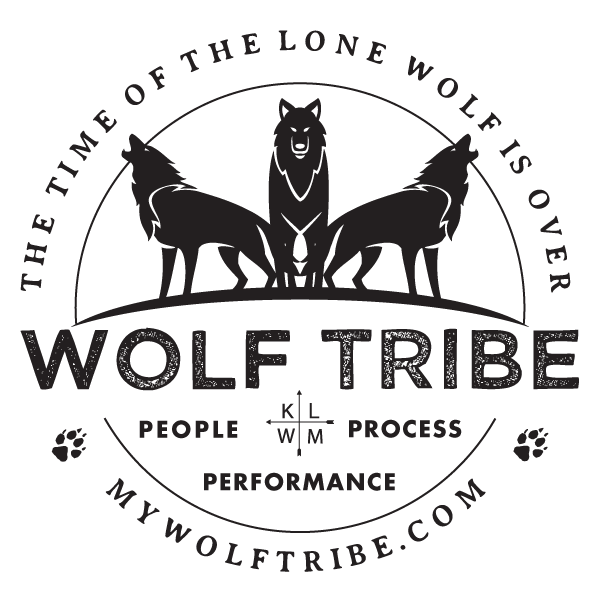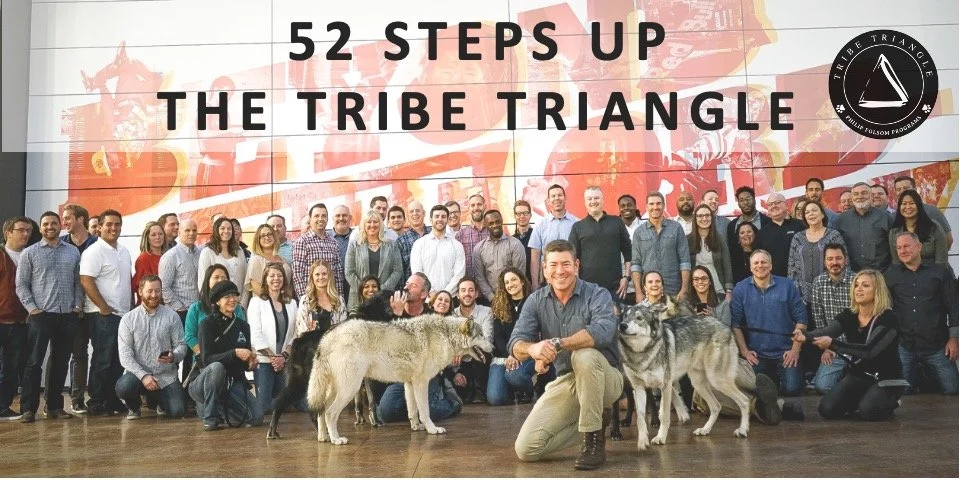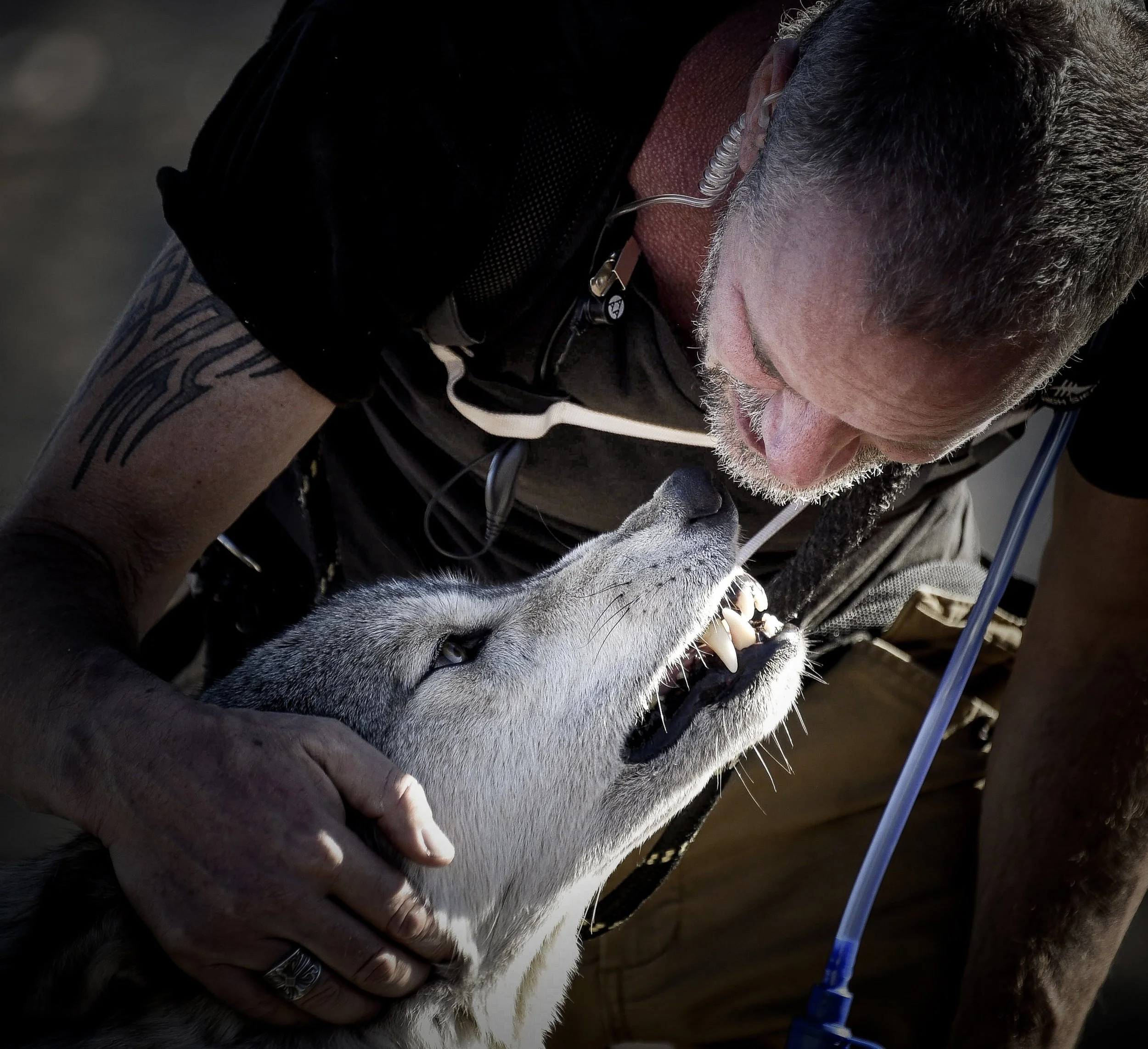Step 27 Up the Tribe Triangle: Healthy Conflict and the Power of Adversity
“No man is more unhappy than he who never faces adversity, for he is not permitted to prove himself.”
-Seneca
Humans are designed for extreme adversity and challenge. Every single one of us is the product of ancestors who persevered through ice ages, apocalyptic floods, droughts and famine. Through most of our history on earth, not being eaten was a major daily challenge. All this resiliency is literally built into our genes and we are the children of relentless survivors who refused to quit because quitting meant death along with your whole family and tribe.
The primary source of resiliency in the face of hardship was the collective power of the tribe and every factor of the kinship level of the Tribe Triangle is a source of resiliency. Kinship is an indispensable survival skill because it makes us feel safe.
Being safe and feeling safe are very different things and making your people feel safe is your challenge because healthy conflict is a product of the feeling of safety.
“I am because we are, and we are because I am” should be the mantra of every person who is preparing to face challenges successfully.
We are currently living in a magical age of climate-controlled environments and vehicles that allow us to avoid the discomfort of walking and elevators and escalators that allow us to avoid the discomfort of climbing. We are blind to the miracle of endless clean water that comes out of pipes in the wall and the strange challenge of having so much food that obesity is a larger health challenge than starvation.
Instead of ushering in a golden age of humanity this lack of adversity is causing a collapse into anxiety, depression, addiction and suicide. We have not been liberated from the genuine stresses of survival and are instead dying of stress and lifestyle-related illnesses of heart disease, cancer, strokes and diabetes.
Discomfort is now viewed as ‘bad’ and evidence that something has gone wrong instead of a normal condition of life. We are living in deeply artificial times and artificial times require artificial means. We must learn to embrace embrace the healthy conflict of adversity to reclaim our resiliency, organizational success and both physical and psychological well-being.
Normalizing healthy conflict and adversity is a steep challenge for your family and organization and must be led and modeled by you, Tribe Leader. Here are several categories and best practices to reclaim the sustainable success of thriving in adversity.
Healthy conflict encompasses a wide range of success drivers including risk-taking, accountability and conflict resolution. Creating a healthy relationship with healthy conflict is the process of developing resiliency. The ability to engage with healthy conflict is the ability to compete successfully now and evolve successfully for the future.
Like every level of the Tribe Triangle, Healthy Conflict cannot be decreed. It must be made and maintained by vigilant and regular recommitment of all the culture components below it. If you or your team are ever struggling with any of the factors related to the risk-taking and accountability of healthy conflict, do a quick inventory of the foundational components of your honor-based culture.
Components of Honor Alignment
Shared vision
Shared values
Shared mission
Mission Transparency
Reciprocity
Brand clarification
Change management
Components of Kinship
Resiliency
Sustainability
Kindness
Altruism
Platinum Rule
Friendships
Trust and Safety
Appreciation
Communication
The reason that issues related to healthy conflict cannot be decreed and only established with the hard work above, is the simple fact that they are hard. Significant growth and advancement of all sorts is always hard. Not because of the resource output that it requires (but that is also true), but hard because it will always involve the death of the old way of doing things and that is psychologically deeply uncomfortable. The establishment of new behaviors and practices requires the death of old accepted habits.
Habits are comfortable and efficient, that is all. They are not designed for growth and new practices and procedures are very energy and resource demanding.
Running is hard, walking is easy.
Sitting down is easier still.
Quitting is always close.
All life including the life of your family and organization will always tend towards comfort and ultimately, entropy. Your job as Tribe Leader is to shovel coal into the furnace of success and to continue fighting for growth. This entire section of the Tribe Triangle is what you need to do to win in this arena.
Growth and advancement are also hard because they involve conflict with accepted procedures, roles and identities. This process will always trigger and threaten many people because it is the death of their old story and regardless of how beautiful and powerful the vision of the new phoenix is, no one looks forward to burning to death.
Hold your vision! This journey of growth will require you to climb the mountain of conflict.
No one accidentally walks uphill and no mountain is climbed accidentally.
Healthy conflict can only be honestly discussed, explored and implemented after establishment of the alignment foundation and the trust and safety of kinship.
Click here To watch the video of Step 27: Healthy Conflict and the Power of Adversity
Leaders Must Write and Speak
Answer these questions in your journal by really writing them down. Discuss them with at least one of your most important people and really listen to their response.
Where is your family or organization struggling with growth or change?
What components of Alignment or Kinship are lacking in your culture? Write them down for yourself and speak them to your leaders and partners. This is the beginning of Healthy Conflict which is an unavoidable step towards thriving.
Components Alignment
Shared vision
Shared values
Shared mission
Mission Transparency
Reciprocity
Brand clarification
Change management
Components of Kinship
Resiliency
Sustainability
Kindness
Altruism
Platinum Rule
Friendships
Trust and Safety
Appreciation
Communication
Ubuntu,
Philip Folsom







